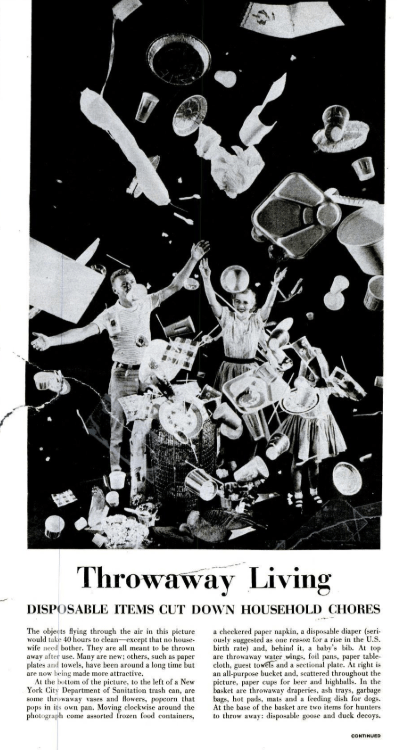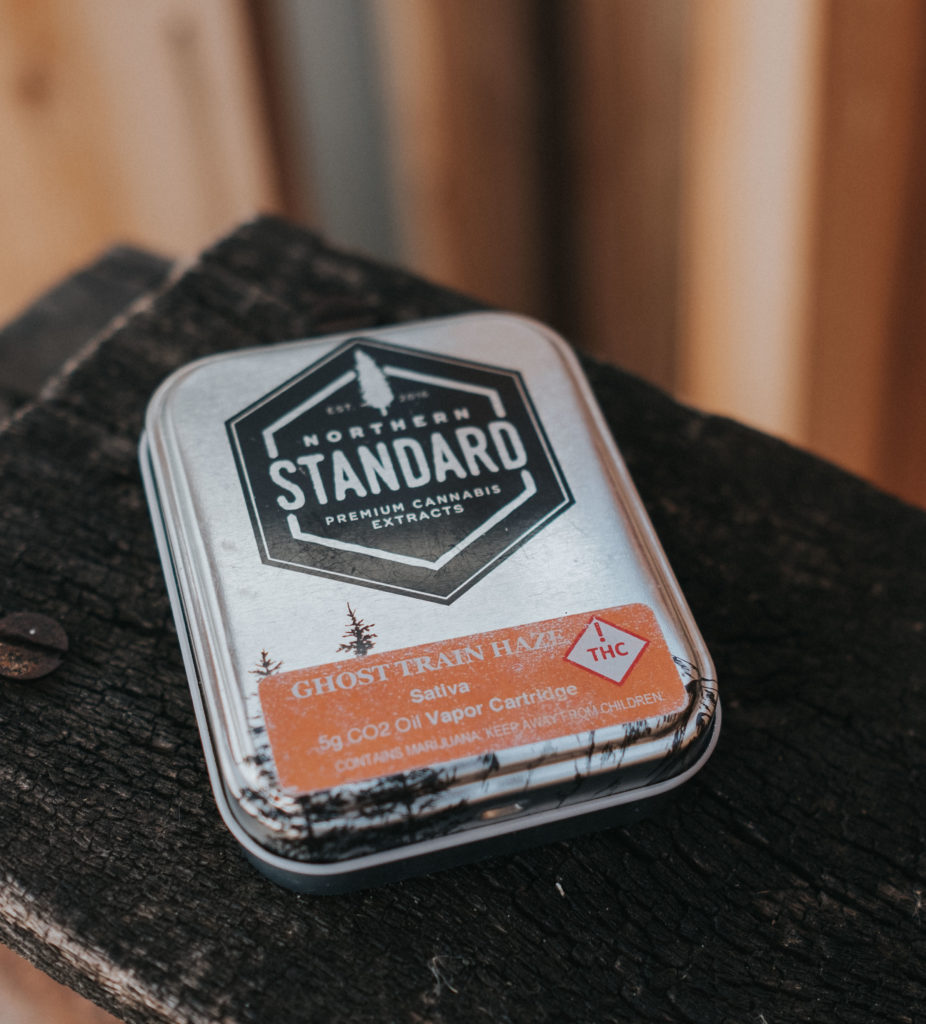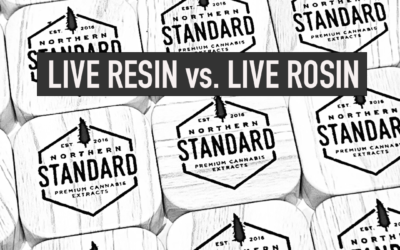The Cannabis Industry Has a Big Plastic Problem
In 1955, LIFE Magazine celebrated the advent of cheap, versatile, and ultimately disposable plastics with an article titled “Throwaway Living.” It was a portrait of a world of wonderful convenience, courtesy of the post-war plastic revolution.
Throwaway Living
But nothing comes without cost, and the conveniences of our society’s apex now threaten our future. The non-profit organization Plastic Oceans estimates that 300 million tons of cheap plastic waste are produced worldwide each year, over 8 million tons of which ends up in our oceans. Once there, it breaks into microplastics, poisons our water tables, threatens our sea life — and re-enters the food chain (which is why you now eat about a credit card’s worth of plastic each week).
We face a severe pollution crisis, and with global plastic production set to triple by 2050, it will almost certainly get worse.

Small Volume, Big Waste
When it comes to waste, no industry is blameless. But the complication facing cannabis companies is that they must use more plastic than manufacturers in other sectors, because their packaging must adhere to childproofing requirements.
Nearly every state with legalized cannabis has child-resistant (C-R) packaging requirements on the books. For its part, the State of Colorado has indicated that edible cannabis products “must be packaged in a single serving, child-resistant container”, and that all flower and vape extract packaging must be both opaque (which entails the use of thicker plastics) and child-resistant.
Most child-resistant (C-R) packaging, which has been required in the US since 1972, has closures that require two dissimilar actions to open. Today, C-R packaging used by cannabis producers includes mylar envelopes with built-in zippers, bulky slide boxes with plastic trays, and “doob tubes”, which can use as much as 40.5 grams of plastic to secure a single one-gram joint. All of this packaging is used but briefly, to transport cannabis products to the home, where it’s usually just thrown away.
The cannabis industry’s waste output will increase as sales do, and they’re increasing quickly. April and May of 2019 were Colorado’s best-ever months for cannabis sales. Meanwhile, nationwide cannabis sales are projected to hit $30 billion by the year 2023.
This all begs the question — can’t we mitigate the pollution crisis by doing a better job of recycling our used packaging?
Unfortunately, recycling isn’t the solution we thought it was.

Recycling Reconsidered
The admirable, ambitious concept of recycling is flawed in execution. Even if you toss your plastic bottle in the designated bin, it will probably still end up in an incinerator, a landfill, or the ocean.
That’s because, despite what young students are taught in school, the majority of plastic waste is never recycled. There are seven different categories of plastic waste, and they must be separated from each other at recycling plants, a task which is next to impossible due to the sheer volume of plastic waste produced.
There is also a diminishing demand for recycled plastics. Brand-new “virgin” plastic is generally a cheaper purchase than recycled plastic, and with the bottom line in mind, most companies (including cannabis producers) choose the former.
Until recently, the US recycled just 9% of its plastic waste, something that was typically accomplished by exporting it to foreign waste management companies. That changed on January 1st, 2018, when Chinese officials announced that the country would stop accepting a majority of waste imports, a move that essentially crippled the US recycling market overnight.
Recycling has now become more expensive than ever. This March, the New York Times reported that hundreds of American communities had eliminated their recycling programs entirely, and former EPA Administrator Judith Enck estimates that the US now recycles less than 5% of its plastics.
Related: The Guardian examines the UK’s waste management system, “Plastic Recycling is a Myth.”

What’s the Next Move?
Just because plastic is king (for now) it doesn’t mean we don’t have sustainable options. Compliance rules make it impossible to entirely eschew the use of plastics, especially for cartridges and disposable bags — but not all products need to be shrouded in plastic.
At Northern Standard, our solution to the plastics and recycling issues is to package our vape cartridges in aluminum tins. It’s a more expensive option, but aluminum tins, while they do cost more to produce, give a sturdier, sleeker alternative to the cardboard and plastic packaging that line dispensary shelves. We cans also clean, disinfect, and re-use tins that are returned to us in usable condition. Besides that, using aluminum makes sense, as recycling aluminum is a process that actually works as envisioned – it requires 95% less energy than extracting new aluminum resources does. That explains why, according to The Verge, “almost 75 percent of all the aluminum ever produced to date is still in use today.”
Our plastic pollution crisis requires radical solutions. But it’s within the cannabis scene, which is built on challenging the status quo, that we may be able to find the innovation needed to shape tomorrow’s industry practices.
At Northern Standard, our concentrates are packaged with high-quality glass and metal materials, and available on-shelf in aluminum tins.
Related Articles
What’s the Difference between Live Resin and Live Rosin?
Let’s first break down the term “live”. Live concentrates are made from plants that are still alive, meaning the material is harvested and immediately extracted - the biomass is never cured or dried. Cured dry flower is great...
The Future of Cannabis
The Future of Cannabis The American cannabis industry has grown so quickly that some might forget that it barely existed a decade ago. Then the voters got their say, new markets opened, and in 2018 we saw $10.8 billion of legal cannabis sales in the US. That figure is...
Musicians on Cannabis (In Their Own Words)
Last year, six Japanese teenagers and avid concert-goers were arrested for cannabis possession. “We wanted to be like foreign musicians,” they explained to Tokyo police. “So we smoked weed.” Their endearing defense, while it didn’t save these kids from probation, is...



